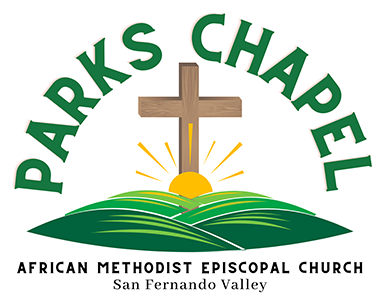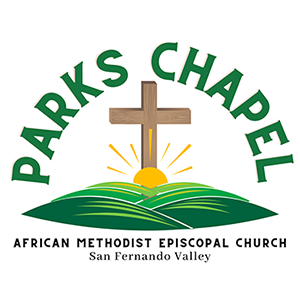“MOVING FROM LAMENT TO HOPE” – ISAIAH 64:8-9
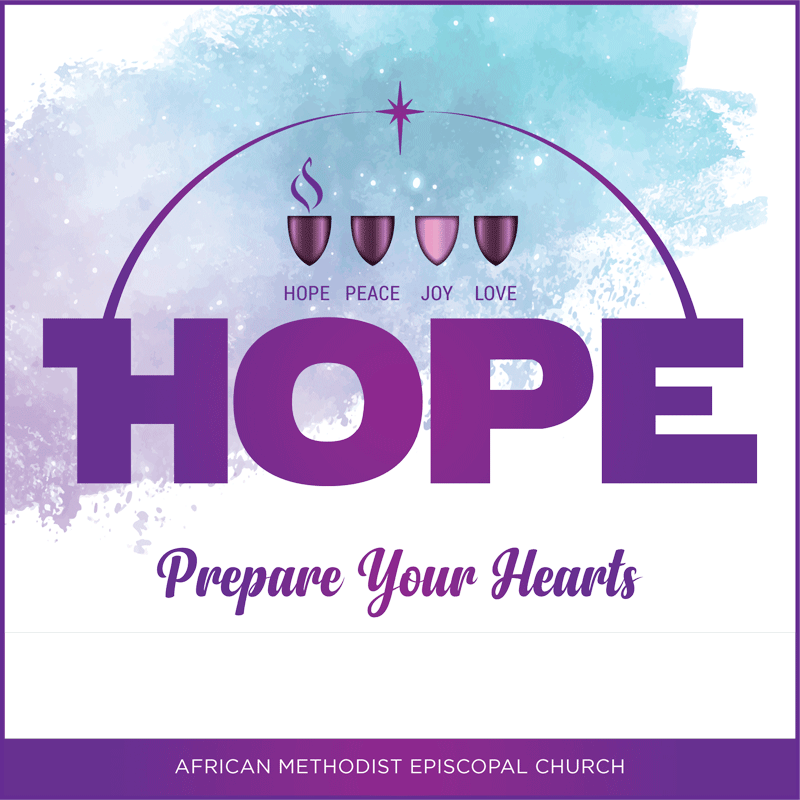
by
The First Sunday in Advent
By: Reverend Craig Thomas Robinson Jr.
“Yet you, Lord, are our Father. We are the clay, you are the potter; we are all the work of your hand. Do not be angry beyond measure, Lord; do not remember our sins forever. Oh, look on us, we pray, for we are all your people.”
Isaiah 64:8-9
Move 1 – It’s Beginning to Look A Lot Like Christmas!
It is easy to forget that Advent, the forty days leading up to Christmas,
is a season of lament and penance. Nevertheless, Christmas cheer seems to have come early this year! In my household, for example, the Christmas tree is already set up. Shopping centers on the Magnificent Mile (I pastor in Chicago) have already put up their Christmas décor (in fact right after Halloween some places were beginning to look a lot like Christmas).
Perhaps 2020, with all its twists and turns: a global pandemic, civil unrest in the face of more police brutality, a tempestuous election cycle, has caused many to crave some semblance of Joy.
It makes perfect sense to skip the moaning and groaning. It makes sense to push past the desperation and devastation and think about things that make us glad.
Still, advent is a season of lament.
It is fascinating to me that before any moment of celebration (liturgically speaking) there is a season of lament and penance. Advent precedes Christmas and Lent precedes Easter. Perhaps the church mothers and fathers of old understood that before there is a morning of hope and joy there is often a night of doubt and weeping.
In our lesson from the Hebrew Scriptures the prophetic oracle of this 64th chapter of Isaiah takes us on an emotional prayer journey from lament to hope.
Move 2 – Making Space for Lament
The journey from lament to hope comes with at least two questions.
The first question is: what is lament?
The second question: why is lament so important?
To answer the first question I borrow language from Glenn Pemberton’s book Hurting with God: Learning to Lament with the Psalms. He writes, “Lament is a complex language of complaint, protest and appeal directed to God.”1 I think this is a great definition and fits well with our text for today. Indeed the oracle is complaining, protesting, appealing to God to “…rend the heavens and come down.” The desperation and devastation of this writer’s experience and the experience of the nation of Israel demanded divine intervention. This 64th chapter of Isaiah is most assuredly a lament.
Why, then, is lament so important?
Why should we make space in our lives for lament?
If lament is a direct petition, protest and appeal directly to God, it seems that the importance of lament lies in its orientation toward sincere vulnerability. Such vulnerability is rooted in a level of trust in God. We trust that if no one else can handle the toughest parts of our lives, God will hear it all. Lament, then, is an incredibly honest type of prayer.
If there is one thing we need more of these days, it is honesty in our prayer lives. Honesty in prayer moves us forward on this journey from lament to hope.
Move 3 – Honest Prayer Moves us Forward to Hope
Isaiah 64 lays bare the truth of a desperate people, a devastated people, a community that tried to cope with all the questions and cares and concerns that arose from years of oppression and exile.
In this lament we see a model for prayer that can move us forward to hope:
A. Remember the Past
Everybody has a past.
The first five verses of our text recall God’s past activity on behalf of God’s children. In times past, God “came down
to make your name known to your enemies and cause nations to quake before you.” It is always good for us to pause
and remember God, to count our blessings, to look back at the ways God has made, doors God has opened, danger
1 Glenn Pemberton, Hurting with God: Learning to Lament with the Psalms (Abilene, Texas: Abilene Christian University Press, 2012), 30, Kindle.
God has protected us from. Recalling the past helps us remember how good God was and is to us. The songwriterput it this way:
“When I look back over my life and think things over, I can truly say that I’ve been blessed. I have a testimony!”
Hallelujah! We have history with God!
On the other hand, commentators push the importance of recalling the past a little further. They suggest that not only is recalling our past with God remind us about how God has been present in our lives, but in this prayer it also goes to remind God of God’s own work on behalf of God’s children. We not only have a history with God but God has a history with us.
It is as one might say to an old friend…remember the time?
God, remember when you turned things around for us?
God, do you remember when you made our enemies behave?
God, do you remember how your glory made everyone recognize how powerful and present you were
Can you please do it again for us?
It is an appeal to past behavior for present provision.
In like manner we are taught to pray the scriptures as a way of “obligating God” to stand by God’s word and God’spromise.
Moving from lament to hope requires some honest conversation about the past.
B. Confess Our Present Shortcomings
Not only must we recall the past but we also must confess our shortcomings in the present.
Advent, like lent, is a time of deep reflection on what Howard Thurman would call our “growing edges.” The text moves from recollection of the past to a moment of deep reflection on how the people of God had fallen short in their commitment to follow the God of their salvation and deliverance. The oracle asks the question: “How then can we be saved?”
It is vitally important to our growth that we not delude ourselves into thinking that we have everything together. It is hard to admit, but we all have areas for growth. This lament teaches us the value of confession as an essential element of our prayer life.
I attended catholic school for my entire elementary education. As part of our religious formation, our school required that students participate in the Sacrament of Reconciliation. To reconcile our souls with God, we were invited to join the priest in the confessional and tell the priest all the things we had done that could damage our relationship to God.
I was grateful for this practice, even as a child. It was good for me to get things that were bothering me off my chest. To many of us carry a lot of baggage in our hearts that is not only weighing us down emotionally and spiritually, but could be damaging our relationship with God.
When we confess our sins and shortcomings, When we acknowledge that we have messed up, When we truly repent and turn to God we are moving forward because confession is total honesty with God. We can trust God with the deepest and darkest secrets of our life because we know that God cares for us and will not hurt us.
The movement from lament to hope requires that we take stock of the past as a reminder of who God is to us and who we are to God.
Moving forward from lament to hope requires that we have an honest conversation about our shortcoming with God. We must make confession and repentance a cornerstone of our prayer life.
Finally, in order to move from lament to hope, we must trust that God is watching.
Move 4 – Trust That God is Watching Over Us
The prayer shifts again as it nears its conclusion It moves from confession to a sincere, faith filled petition for God to come and see about his children.
The prophet proclaims to God, “Yet you, Lord, are our father…”
What a powerful faith statement
Like Jesus in the Gospels
“Our Father” connotes intimacy
Closeness
God is more than just a distant deity, even though it may seem at times that God is distant. You never can quite get
away from God’s watchful eye.
Beloved, that is why lament is so important
When times get desperate we turn to God because God is our Father
And like a good parent, God has God’s eye on us!
I was like any child
Relatively good but had the capacity to get into mischief
What stopped me from getting into mischief was my mother who often showed up or spoke up whenever I was about
to do something I should not be doing.
I often wondered how my mother could catch me in the act before I even acted it out. How could she be so perceptive as to know what I was doing even when her back was turned?
One day I asked here these questions
And her response was a classic mother/father response
I’ve got eyes in the back of my head. I see all.
God sees all
In our most desperate of situations, God sees us
When we are languishing in our sickbed, God sees us
When hell is breaking loose all around us, God sees us
When we don’t know where to turn and who to talk too, God sees us.
God is always watching.
God never slumbers nor sleeps.
God is our creator.
God is our deliverer.
God is our refuge and strength.
God has the world in God’s hands.
God is our hope!
If we remember that our heavenly parent watches over us, we will find strength for today and bright hope for tomorrow. Amen.
The Reverend Craig T. Robinson, Jr. is the Senior Pastor of St. James African Methodist Episcopal Church in Chicago, Illinois. He holds a Bachelor of Arts degree in History from Morehouse College. He went on to earn the Master of Divinity and Master of Sacred Theology degrees from Yale Divinity School. Reverend Robinson is married to the Reverend Dr. Shakira Sanchez Collins who is also an ordained minister and a physician.
Recommended Posts
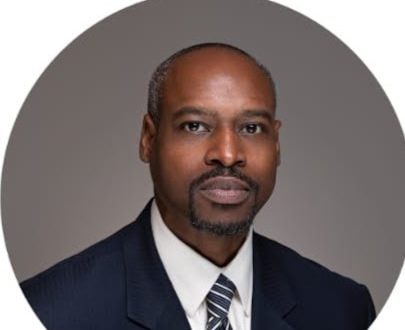
“Work For God ” – Join The Lay Organization
March 18, 2022
How To Study the Bible – Part 1
February 13, 2022
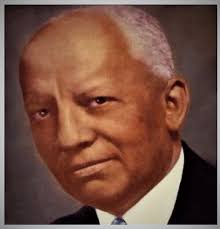
THE FATHER OF BLACK HISTORY
February 19, 2020
